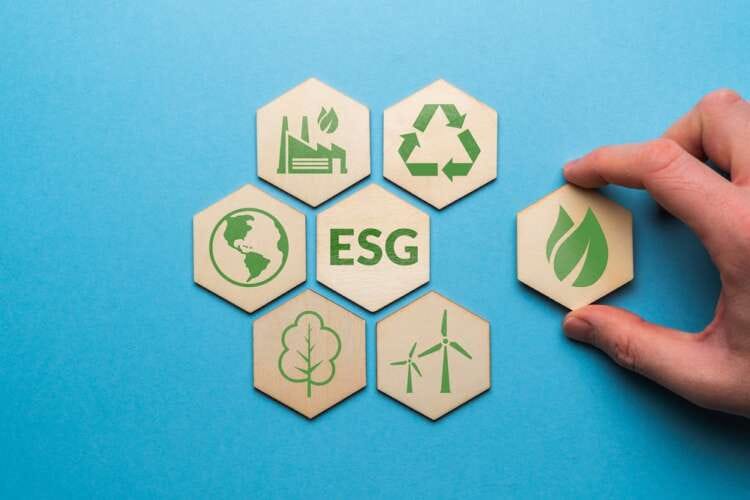
Leading the way in ESG: the transition to a cardless ecosystem

Ever-increasing environmental, social, and governance (ESG) pressures will drive the financial services sector, like most other large businesses, to introduce net zero policies. Faced with the very real threat of climate crisis and plastic pollution, emissions will be minimised and the use of plastic reduced, which could mean the elimination of traditional plastic cards and the primacy of mobile contactless apps instead, argues Pavlo Khropatyy, VP, Global Head of Delivery FS&I at Intellias.
Contactless payments are already a common feature of our everyday lives. If you walk into any shop in the UK, you wouldn’t be surprised to see people paying at the till with a contactless mobile app. Even for more traditional sales – such as those made at a local food market – it wouldn’t come as a shock if a contactless payment device was on hand. Recent research suggests that the number of people using smartphones to pay contactless in UK stores is expected to increase by nearly four million between 2020 and 2025.
Meanwhile, there can be no denying that the threat of extreme climate change is looming and the two most prominent dangers are carbon emissions and plastic pollution. With the race on to reduce both as much and as quickly as possible, the question is: how can the finance industry make a tangible positive impact?
The explosion of plastic and its impact
The financial services sector has always been quick to adapt to new technologies and changing consumer behaviours. Way back in the 1950s, credit cards were first introduced as a more convenient way to pay and since then, plastic has taken over the planet. By 2021, there were over 1.06 billion open credit cards in the US, with people owning 2.7 credit cards each on average. Globally, it is estimated that there are 2.8 billion credit cards in use worldwide, equivalent to 140 million kilograms of plastic. Moreover, each card has a carbon footprint of 150g CO2, taking material, manufacturing, and packaging into account.
The vast majority of credit cards are made of PVC plastic, which is difficult to recycle and so the vast majority end up in a landfill. Consider also that each time you use a credit card, you are consuming energy with each transaction; a tiny amount admittedly but, with billions of transactions carried out daily, it soon adds up. So, what role can the finance industry play in helping to minimise plastic and energy consumption?
The implications of the digital divide
The Covid-19 pandemic accelerated the development of several technologies to enable work-from-home and to ensure the continued safety and health of the public. One of the most promising and lasting developments was the introduction of contactless payments and mobile e-wallets. Not only did this preclude the need for plastic entirely, but it also was accompanied by the adoption of paperless, emailed receipts, pushing forward yet another green initiative. Yet, whilst the digital shift has provided a significant number of benefits, it has also been accompanied by a few challenges.
Whilst the tech-savvy consumers with full and easy access to smartphones and reliable internet are thriving in this contactless environment, those without risk financial exclusion. This issue is disproportionately impacting the older generations. Whilst there is still the option to use cards and cash within most stores, this option cannot be relied on for the foreseeable future, as the need for meeting ESG targets as well as changing consumer habits grows. Instead, efforts need to be made to combat this issue; educational initiatives from the industry and government could aid in narrowing the digital divide and help build the older generation’s confidence in using digital payment systems (and provide the resources to do so, too).
The importance of ESG and the move to a cardless ecosystem
ESG is increasingly important for businesses of every kind, and the finance industry is no exception. Making a public commitment and sticking to it is the first step. Start by mapping a route to net zero, no matter how daunting it seems. There are many areas across organisations, from turning lights out at night to encouraging remote working that all businesses can implement. The financial sector can go one step further by looking at how to take plastic out of the equation.
The advent of open banking will also play a significant part because the entire concept of ‘cards’ is eliminated and payments are made directly between accounts. This development will likely be quickly adopted, particularly for digitally-native Gen Z and millennials, who are as comfortable with online payments as their great-grandparents were with shillings and crowns.
It is possible that within ten years, the idea of carrying one – or even several – plastic cards around will seem absurd. Every transaction will be facilitated by mobile devices, receipts will arrive electronically, and thus the negative environmental impact will be reduced. There’s no doubt, therefore, that the expiry date for the use of plastic cards in the payment process is fast approaching – it’s simply a question of when, not if.


